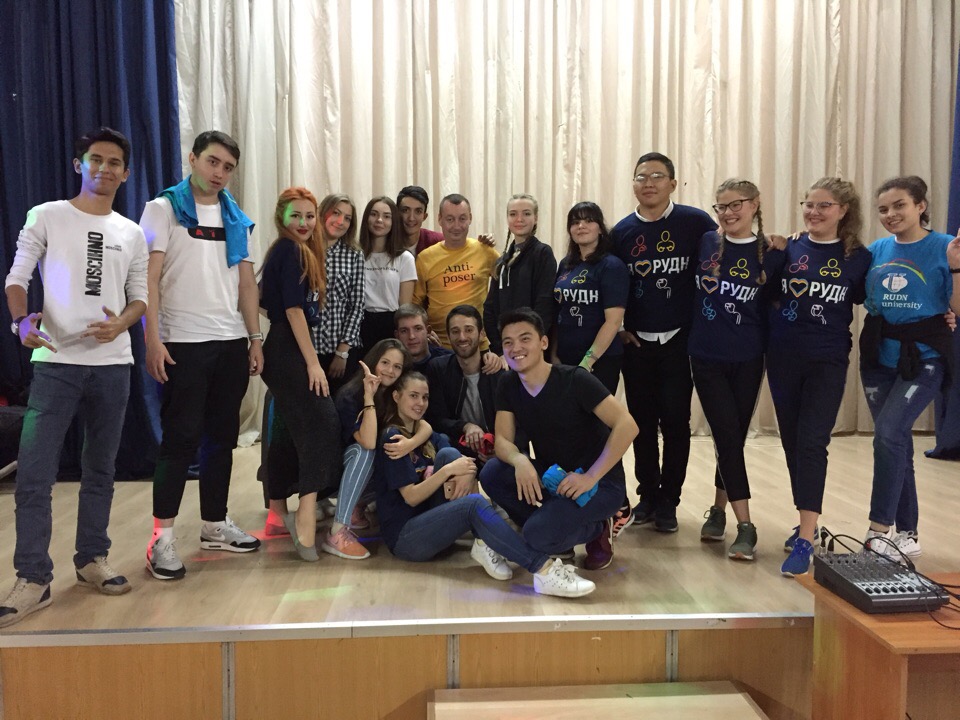RUDN KVN School: how to learn to have fun
Upon the initiative of the students currently playing in the domestic KVN Cup and in various leagues of the International KVN Union, the University decided to support students and as Vice-Rector Alexander D. Gladush said: "Teach people to have fun!"
September 18, 2018, RUDN KVN School began its work. Representatives of different generations of KVN teams were invited to the opening talking about the history of KVN at the Peoples’ Friendship University, their way to KVN peaks, and giving advice and recommendations on organizing the team, writing scripts and preparing for the games. Beginning players saw photos from different years, fragments of the most interesting performances of the teams and a film about RUDN KVN movement.
September 22, a team of more than fifty very young and already experienced KVN players, went to a holiday center near Moscow to master the art of creating good mood under the supervision of experienced and renowned KVN players.
The four teams had to prepare for the contest “Welcome performance”. In the two days of the training the participants had a lot of fun and really got involved in exciting business. Perhaps, one of them will soon set a new height for student humor, not only in RUDN, but also in the whole KVN space!
Peoples‘ Friendship University of Russia (RUDN) has been awarded the All-Russian prize “Time for Innovations” for its patented development ‘Digital Pre-University Faculty’, which allows you to study Russian from anywhere in the world.
The aaniversary medal to the 100th anniversary of V.F. Stanis is awarded to RUDN current and ex-employees and students for: significant contribution to the university development; long-standing commitment to maintaining ties with the university; fruitful cooperation of Russian and foreign organizations, scientists and public figures with the university.
RUDN University employees’ work and contribution to the development of the university cannot go unappreciated. The Ministry of Science and Higher Education of Russia recognizes talented university employees and present them with various departmental and state awards.
